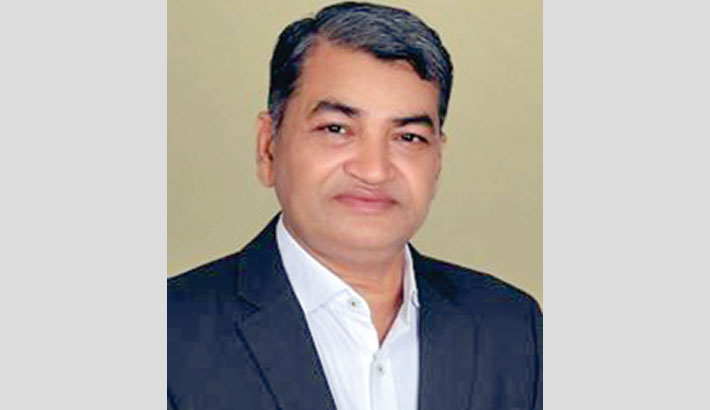Prof Salim advocates for inclusive social growth in FY24
Sun Online Desk
Published: 28 May 2023

Prof Salim Uddin
As Bangladesh heads towards the crucial fiscal year 2023-24, Prof Salim Uddin, a notable economist at Chattogram University, calls for a budget that would emphasize 'inclusive' social growth, agriculture, health, education, and business sectors.
"Recognising the pivotal year for Bangladesh, it's essential that we utilize the Delta Plan - 2100 to leverage a tech-driven policy strategy and work towards the goal of Smart Bangladesh by 2041,” Prof Salim said in an interview with the Daily Sun.
Finance Minister Mustafa Kamal is scheduled to present the Tk 7.55 trillion budget to the parliament on Thursday, projecting a higher growth rate of 7.5 percent for the gross domestic product and aiming to limit inflation to 6 percent in the upcoming fiscal year.
According to Prof Salim, the fiscal planning should include specific measures to maintain stable macroeconomic indicators such as inflation and foreign currency rates, in order to improve the quality of life for the general population.
"Bangladesh's economy is recovering from the setback caused by the COVID-19 pandemic. However, the global supply chain disruption, coupled with the tensions between Russia and Ukraine, has created adverse conditions for import-dependent countries like Bangladesh," he said.
Prof Salim, who serves as chairman of both the Bangladesh House Building Finance Corporation and the executive committee of Islami Bank Bangladesh, points towards the potential of blue economy, a sustainable use of ocean resources for economic growth, as a key driver for national economic growth.
Regarding the annual development programme in the budget, he recommends harnessing the expertise of professionals and boosting the capacity of inspection and audit departments to streamline the process.
In light of the upcoming general elections, he expects the budget to outline strategies to control inflation amidst the rising cost of living.
"We acknowledge that inflation is not a domestically rooted issue for Bangladesh. Inflation has reached extreme levels in almost all countries worldwide, and the global cost of living crisis has worsened," he said.
The economist recommended an 'affordable' commodities programme with incentives from the Trading Corporation of Bangladesh to mitigate the impact of inflation on low-income groups. He also suggested expanding the social safety net programme to ensure the direct delivery of allowances to beneficiaries' accounts through digital platforms. "Strengthening the rural economy is crucial in the budget. This involves refinancing small and medium-sized businesses, introducing incentive programs like low-interest loans, and providing more support to reduce unemployment and poverty," he emphasized, stressing the importance of empowering community economies.
He sees an opportunity to increase agricultural productivity by ensuring accessibility to necessary farming equipment and machinery.
Another significant aspect of this budget is revenue collection, which poses major challenges for policymakers in terms of reducing the deficit and strengthening internal resource management.
"Our tax-to-GDP ratio in Bangladesh is low compared to other Southeast Asian countries. Increasing revenue is necessary, and the National Board of Revenue should be strategically empowered. This includes granting independence to tax policies, tax collection, and tax survey departments," Prof Salim said.
To alleviate the stress on economic indicators, Prof Salim suggested discouraging unnecessary imports, changing the tax structure to reduce the cost of living, promoting trade and industrial production, and implementing timely development projects for employment generation.
The economist emphasized that strengthening the rural economy and increasing the pace of business and trade industry would help stabilize macroeconomic indicators through greater employment generation.
He proposed reducing duties on food, daily necessities, and raw materials related to production, as well as removing unnecessary non-tariff barriers and providing production support to business industries involved in the continuous supply of commodities.
Professor Salim praised the government's positive steps to alleviate stress on foreign currency reserves, including policies on foreign travel restrictions, reducing dollar holdings in commercial banks, and addressing unethical practices in dollar exchange businesses.
Regarding the annual development program (ADP), Dr. Salim, a fellow chartered accountant, acknowledged implementation challenges. He stressed the importance of timely execution to ensure quality work and prevent the misuse of public funds. Dr. Salim identified a lack of capacity and dedication among project implementation, monitoring, and auditing personnel.
Highlighting the success of JICA projects, where contractors often complete tasks ahead of schedule and return unutilized funds, Dr. Salim proposed empowering monitoring and audit departments to enhance accountability among project officials.
Dr. Salim emphasized the need for skilled professionals to assess risk and ensure timely implementation through monitoring and auditing. He suggested utilizing modern tools such as real-time information management, video monitoring, and monthly online monitoring.
He acknowledged the significant budget allocations for social and physical infrastructure sectors, aimed at attracting domestic and foreign investment, reducing business costs, improving global competitiveness, promoting inclusive growth, and alleviating poverty.
Dr. Salim recommended diversifying project implementation across different countries instead of concentrating them in a single country or region. He called for periodic press conferences to publicly disclose progress on large projects, such as the daily construction of kilometers of roads or electricity production per unit. This transparency would enhance accountability in project implementation, he noted.
According to Bangladesh Bank, the foreign reserve stood at $29.8 billion on Monday, and the point-to-point inflation rate was recorded at 9.33 percent.

